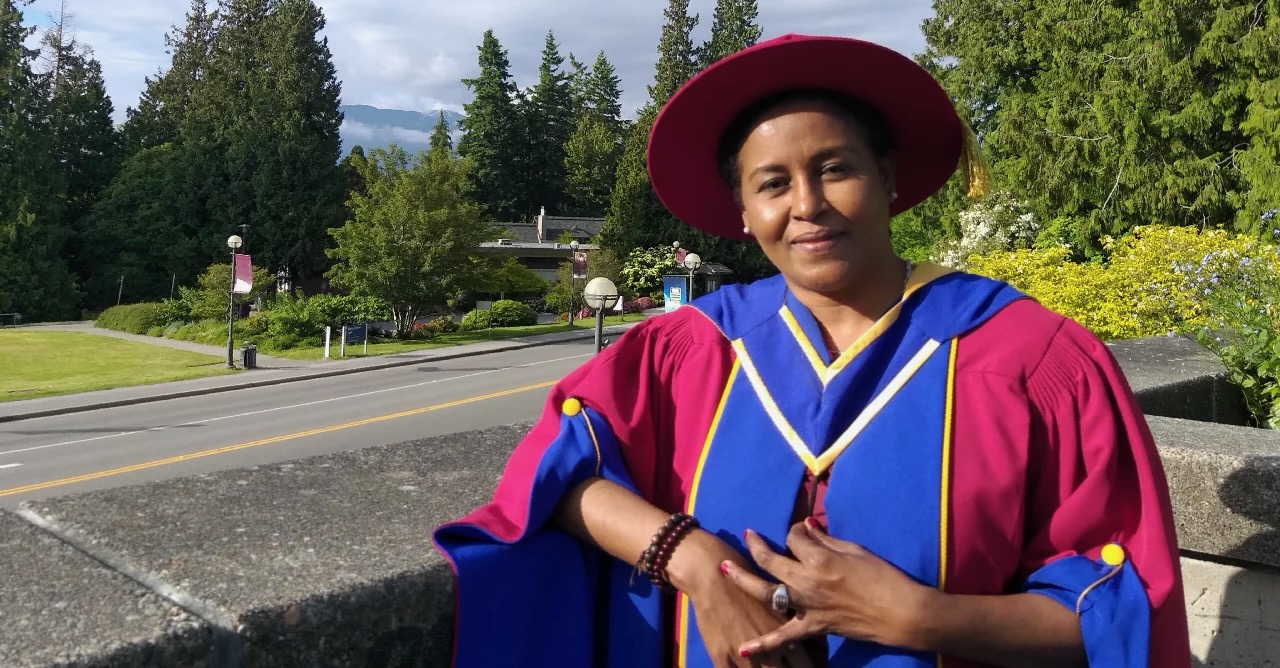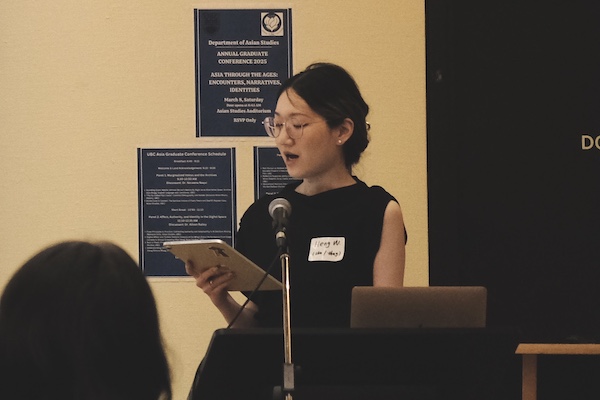

Hello! Can you please tell our readers who you are and what you are currently doing in Sudan?
My full name is Amel Abdelfadil Eldihaib Elradi. I completed my Bachelors and Post Graduate Diploma from the University of Khartoum and Shareq El Nile University in Sudan in the late 1990s before completing an M.A. from University for Peace in Costa Rica in 2008. Ten years later, I completed my PhD dissertation from the Institute for Gender, Race, Sexuality and Social Justice at UBC. After graduation, I worked in Tigray, Ethiopia and went back to Sudan to look after my mother on Aba Island, located in the White Nile state, where I founded a local women’s NGO we called Goodness Radiance. Since the war erupted, Aba Island communities have been hosting 260,000 internally displaced peoples across Sudan.
What is happening in Sudan today that is not often reported in international media?
We know from international media reporting about the violence in Khartoum state, where the capital city is located. But the violence has really spread to at least eight of Sudan’s thirteen states, including Darfur, Al Gezira, South and North Kordofan, and partly White Nile States. Hundreds of thousands have sought refuge in neighboring countries, and millions were displaced within the country; the majority are women and children. The mass exodus of displaced people moved to frontier states bordering Egypt, Ethiopia, and South Sudan. White Nile State, bordering South Sudan, is home to around 1.5 million displaced people from Darfur, Nuba Mountain, Khartoum, and Al Gezira states, as well as refugees from South Sudan.
“A massive international humanitarian emergency assistance is needed urgently in the short-term for Sudan. Medium term, the Sudanese people must work together to find ways to restrain the powers of the military and para-military groups towards a peaceful transition based on justice, so that in the long-term, Sudan can have a democratically-elected, stable civilian government that could chart the country’s sustainable and transformative change.”
You mentioned in your dissertation that the current dire situation in Sudan must be examined against its long history of colonialism. Could you please elaborate?
Colonialism in Sudan involved two periods of rule by foreign powers, separated by a national revolution. The Al Mahadia national revolution (1885-1898) ended the Ottoman or Turco-Egyptian Empire (1821-1881). The British defeated the Al Mahadia national revolution, resulting in Anglo-Egyptian colonial rule (1899-1955), which lasted until the independent modern state formation of Sudan in 1956. Sudan’s tumultuous post-colonial experience have varied between democratic and military regimes, but all embraced the ethno-cultural Islamic/Arabic as the foundation for state nationalism The Nimeiri regime (1969-1985) declared Sudan as an Islamic state with Sharia Law as the law of the land. A transitional government existed briefly after Nimeiri was overthrown in 1985 through civilian protests (Intifada). A new democratic government elected in 1986 was overthrown in 1989 by a military coup supported by the National Islamic Front, which established itself as the National Salvation Revolution Government led by the National Congress Party.
Sudan seems to be a very complex society. How do you analyze its social complexity from GRSJ perspectives?
Sudan’s complexity emerges in light of its social, religious and ethnic divides marked by hierarchical gender-sex systems. Its religious cleavages are related to ethnic ones, but the Islam–Christianity dichotomy is as misleading as the Arab–African one). While 98 per cent of the northern Sudanese are Muslim (mostly Sunni), Christianity is dominant in South Sudan and some parts in the Nuba Mountains, with four-fifth as Roman Catholics, majority of the southerners, and a section from the Nuba and Beja region, are animist worshipping. Through physical violence, the post-colonial Sudanese state differentiated Arab/Muslim identities from African/Non-Muslim ones. Physical characteristics mark racial difference in Sudan, along with language, religion, and cultural practices. Non-Arab groups, such as the Nuba for example, are categorized as Black African. Such dominant ethnic and cultural nationalism of Sudan’s ruling class since independence has imposed an imagined ethnic and cultural “post-colonial” national identity, forcing groups — mostly indigenous Black Africans, including people from the Nuba Mountains, Blue Nile, Darfur, and East Sudan– who do not identify with this imagined nation to assimilate. The resulting ethno-racial tensions have defined contemporary violence and humanitarian crises in these regions marked by other cleavages such as gender, class, and sexuality.
How would you assess the current humanitarian crisis in Sudan?
Sudan is experiencing one of the worst hunger crises in the world. Nearly 11 million Sudanese, including 3 million children, are already displaced from their land and livelihoods. Over 14,700 people have died from systemic killings. Rape of women and children are common occurrences. The deteriorating medical system obscures the true death tolls from ravaged infrastructures, and unprecedented hunger and malnutrition from famine. Over 19 million children, for now a year, are out of school due to the ongoing war. Yet, this new episode of humanitarian and human rights catastrophe in Sudan has not received media and international attention. As the humanitarian situation grows worse by the day, it is Sudanese women, children, the poor, and other marginalized members of society who experience gendered, racialized violence. As I wrote in my dissertation, this violence is systemic, generated historically from patriarchal state formation, post-colonial nationalism, military coups, religious forces, and rival gang-led masculinities, aided by imperial powers and global capitalism.
What can the international community and UBC do to support Sudanese people at this time?
I think Sudan’s fate and future post-conflict development should remain in the hands of the Sudanese people. Such future should be led by a civilian government bent on ensuring the revival of the December uprising slogans: “Freedom, Peace, and Justice.” Any efforts from the international community, including my alma mater, should have these goals in mind. There are still a few local organizations operating in Sudan’s states hosting internal refugees, including the NGO I co-lead on Aba Island. Foreigners and members of the Sudanese diaspora in Canada and elsewhere would need to find local contacts to ensure humanitarian aid goes directly to people who need support. A massive international humanitarian emergency assistance is needed urgently in the short-term for Sudan. Medium term, the Sudanese people must work together to find ways to restrain the powers of the military and para-military groups towards a peaceful transition based on justice, so that in the long-term, Sudan can have a democratically-elected, stable civilian government that could chart the country’s sustainable and transformative change.
Goodness Radiance


